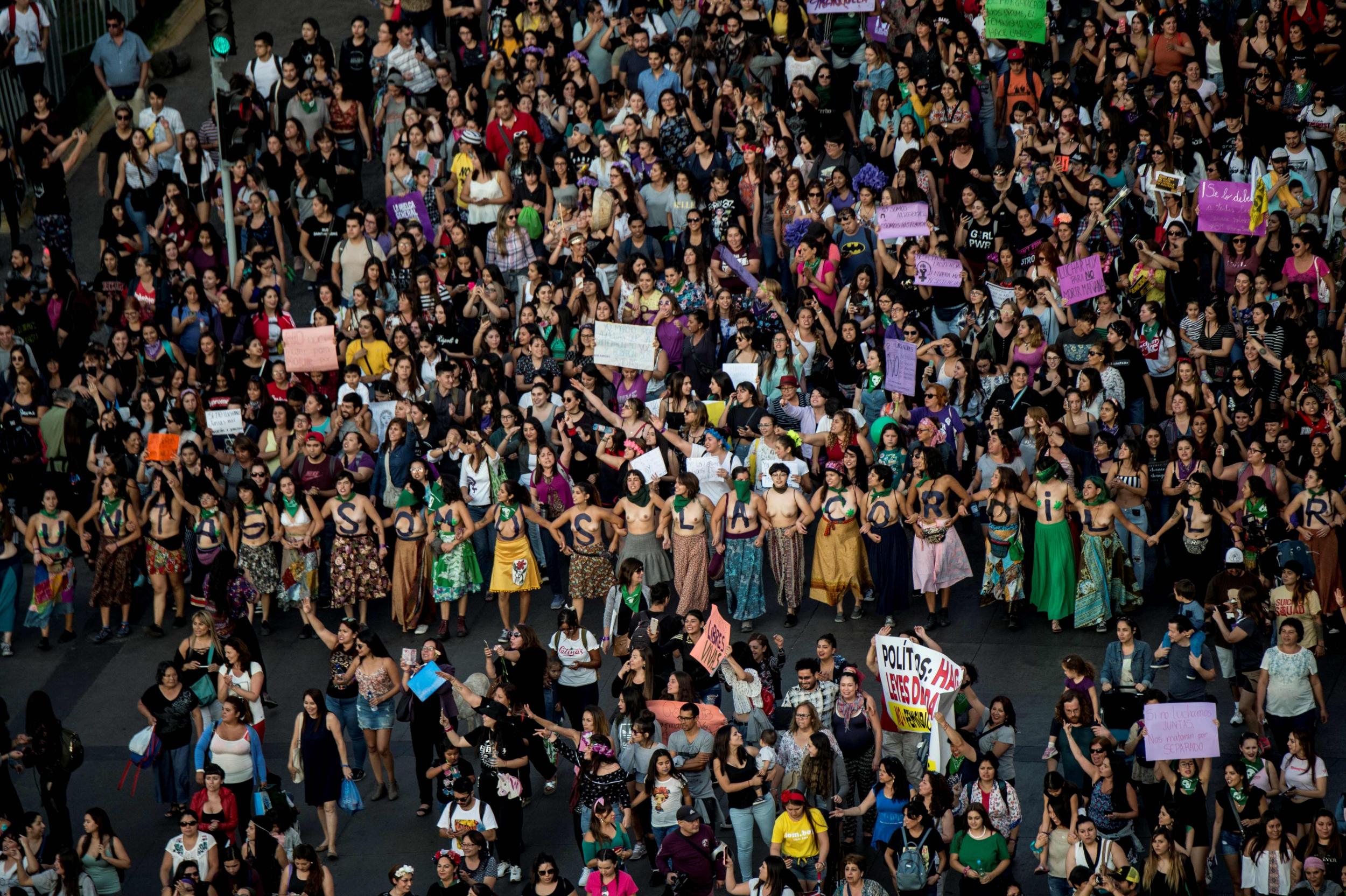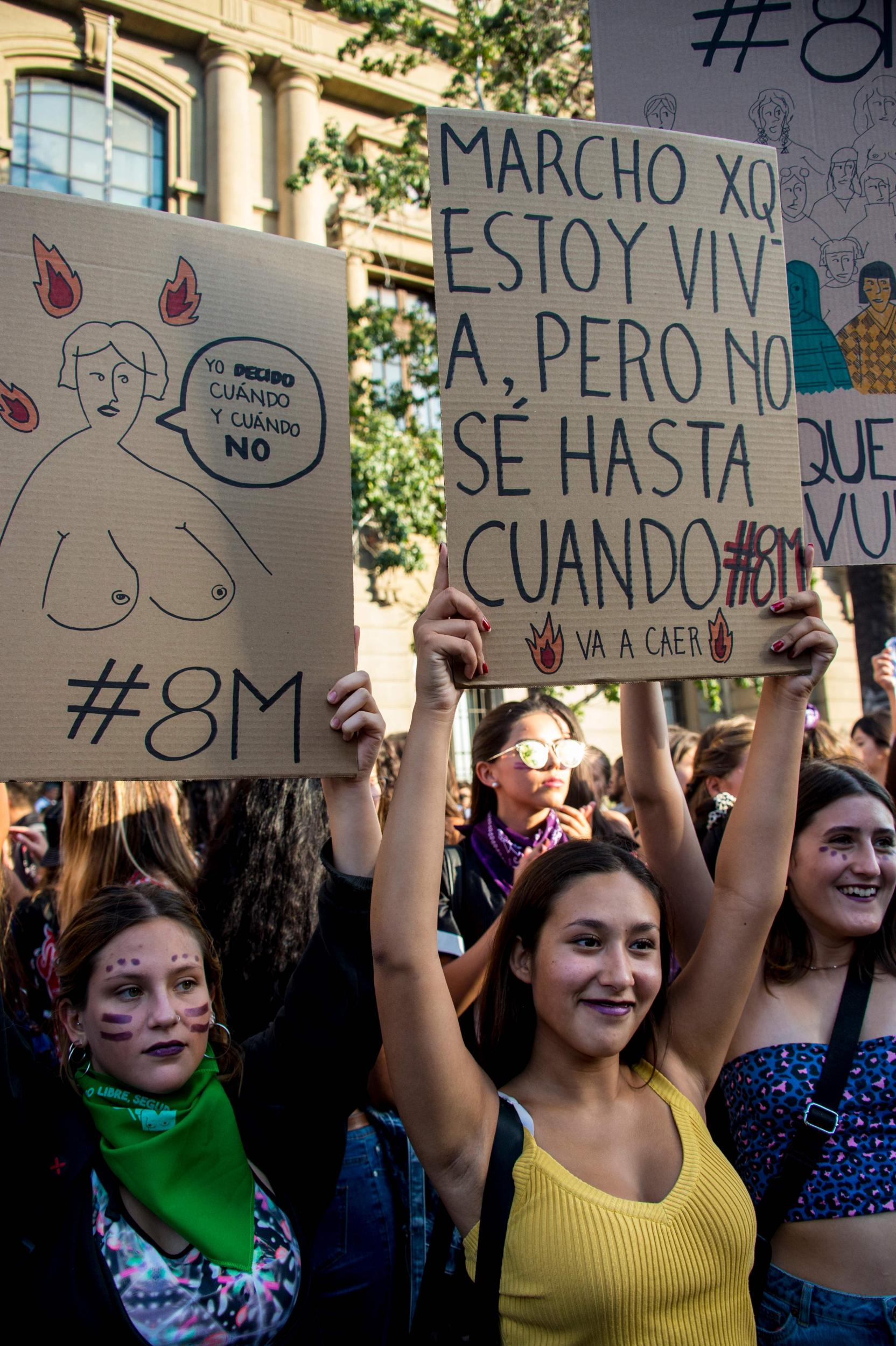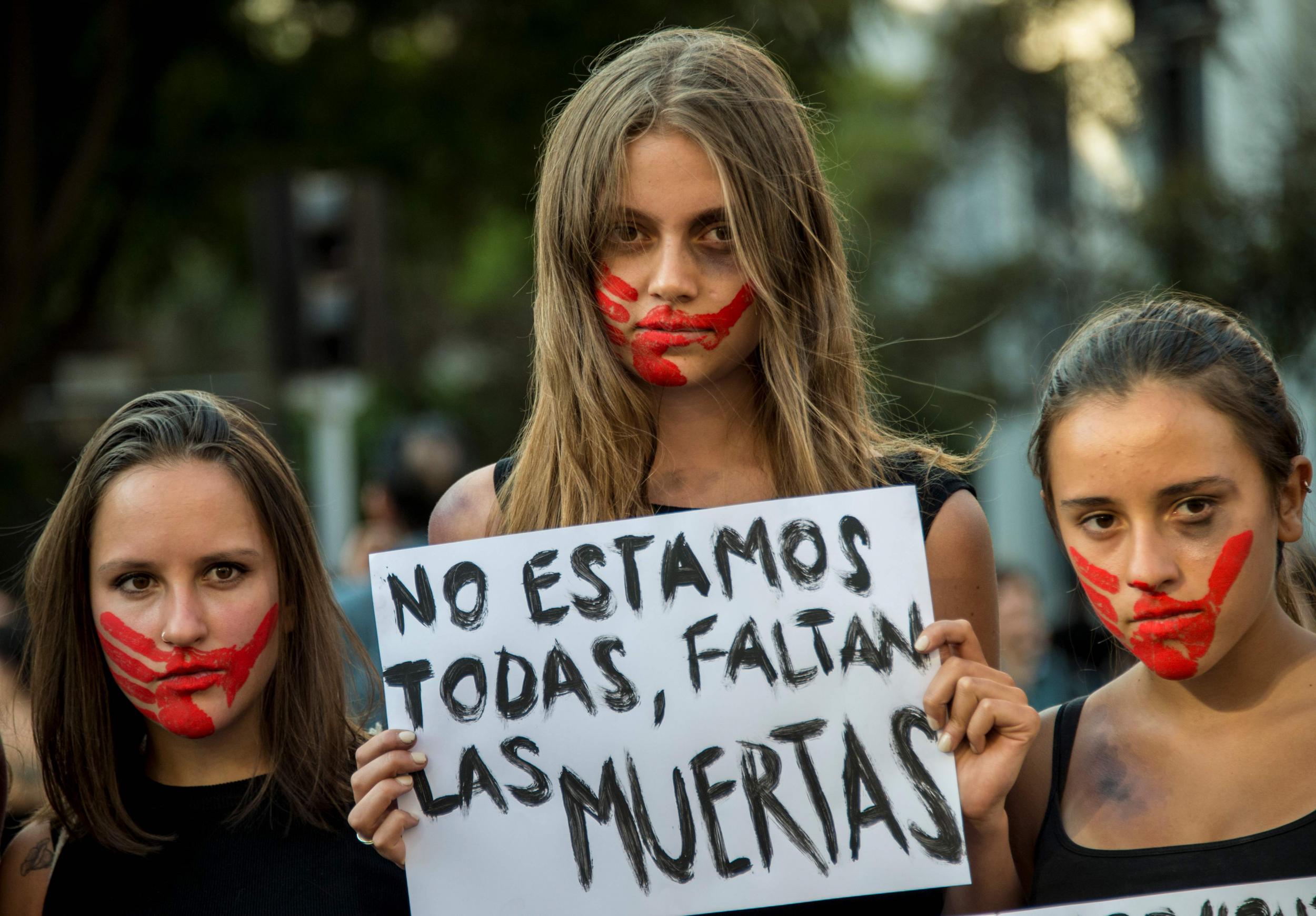Fake footage of people hurling stones at International Women's Day march provokes fury in Chile
Images were archive material from an earlier and wholly unconnected protest

Your support helps us to tell the story
From reproductive rights to climate change to Big Tech, The Independent is on the ground when the story is developing. Whether it's investigating the financials of Elon Musk's pro-Trump PAC or producing our latest documentary, 'The A Word', which shines a light on the American women fighting for reproductive rights, we know how important it is to parse out the facts from the messaging.
At such a critical moment in US history, we need reporters on the ground. Your donation allows us to keep sending journalists to speak to both sides of the story.
The Independent is trusted by Americans across the entire political spectrum. And unlike many other quality news outlets, we choose not to lock Americans out of our reporting and analysis with paywalls. We believe quality journalism should be available to everyone, paid for by those who can afford it.
Your support makes all the difference.A TV station in Chile has received a record number of complaints after it broadcast fake footage of people hurling stones on International Women’s Day.
Mega, a TV network whose headquarters are in the capital of Santiago, said the images of the stone-throwing were taken from the global women’s march.
But it was actually archive material from an earlier and wholly unconnected protest months ago in December.
The country’s National TV Council, who is responsible for supervising proper use of licenses, has received 1,187 complaints from users after the fake images were shown on International Women’s Day (IWD) on Friday.
It marks a record amount for a single case, according to data from the public service broadcaster.
Around 190,000 people marched peacefully in Santiago on Friday calling for equal rights for women and voicing their opposition to violence against women.
They joined millions of other women around the world who also marked IWD - which is celebrated on 8 March every year and has provided a chance to reflect on female achievements and celebrate the movement for greater rights for more than a century.
The National Council of TV of Chile (CNTV) said it had also received 266 complaints after Canal 13 used stock images of former president Michelle Bachelet, who is now high commissioner of the UN Human Rights office, during a report on the Venezuela blackout without giving proper context.
Chile has a deeply entrenched patriarchal culture – with women in the country facing wage disparity and high rates of domestic violence.

The South American country was home to one of the most restrictive abortion policies in the whole world – until 2017 the practice was criminalised without exception.
After years of campaigning, Ms Bachelet, the former Chilean president, pushed through a bill to allow the termination of a pregnancy in three cases: when the woman’s life is in danger, when the foetus will not survive the pregnancy, or in cases of rape.
However, the latter is only permitted in the first 12 weeks of pregnancy, or 14 weeks if the girl is under 14 years old.

The bill allowing abortion was approved by the National Congress in August 2017 – becoming law a month later.
Ms Bachelet’s right-wing successor, Sebastian Piñera, has fiercely opposed any further reforms. Women’s rights activists have raised alarm bells that his government could roll back reforms.
Join our commenting forum
Join thought-provoking conversations, follow other Independent readers and see their replies
Comments